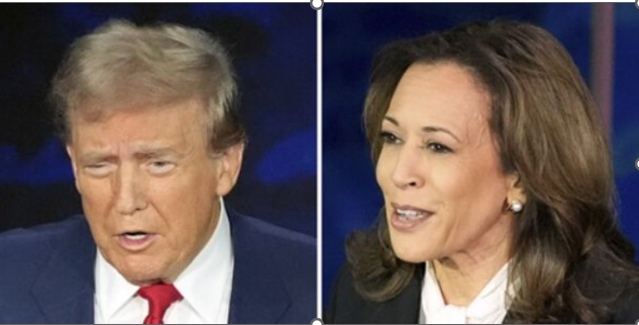Stratagem Weekly
Pollsters asked wrong questions in Election 2024
Election pollsters have likely failed to capture the most important criteria to explain voters’ decisions: disdain or validation from candidates. This “miss” limits the understanding and acceptance of the Nov. 5 results.
The two questions pollsters should have asked are:
What does a candidate think of you (your gender, background, class, heritage, area of residence)?
And based on how that candidate thinks of you, who will you vote for?
For several election cycles, pollsters erred in their predictions by oversampling college grads and over-relying on landlines. As a veteran researcher and business strategist for clients ranging from the Fortune 100 to multinationals to state and national candidates, I didn’t hear pollsters critiquing their questions to avoid another miss.
Human decision making is highly illogical. In contrast, polling questions ask for rational thought: “Based on the candidate’s stance on childcare, how will you vote?” We humans don’t think as many candidates, party strategists or pollsters think we think.
Americans’ perceptions and preference for an offering—be it a car, beer, computer or candidate—develop subconsciously. When the need for a decision or action is triggered—such as going to the polls—preference moves to consciousness.
The ultimate driver of Americans' preference for an offering is how it reflects who they are or aspire to be. If they see very little, they’ll choose an alternative, or delay having to decide, just like the nation’s undecided voters. They may never make a choice. Why? Because it’s an anathema to choose a reflection of themselves that they revile.
Let’s say you really like your doctor, but upon leaving an appointment you overhear the nurse saying he or she thinks you are a hypochondriac. It’s almost certain you’ll switch to another physician. Now, think of candidates you favor. Do you know what they really think of you? It may be the most insightful and predictive polling question no one is asking.
It’s a universal psychological and sociological truth: If you sense people like and believe in you—just as you are—you are drawn to them. You even attribute to them positive characteristics based on thinking they like and respect you.
When we sense from someone scorn, derision, or disdain it is THE most penetrating of criticisms, and incredibly motivating emotionally. It lingers in the memory for decades, fomenting distrust, arguments, and even all-out war.
Imagine that your mobile phone rang Nov. 1, and a pollster asked what you believed each of the major party candidates for President thought of you (your gender, background, class, heritage, area of residence). Then the pollster asked, based on what the candidate thought of you, who would you vote for?
Post-Election Update: Mid-November, some colleagues mused that what I posited above could not explain the support of Latinos and women who voted for President-elect Trump, whom some believe demeaned those voters.
I explained: Many presume that the self-concept and aspirations driving one's vote are predominantly gender or ethnicity. But they can just as well see in a candidate a reflection of their deep anger and resentment, validation of their aspirations for more economic certainty and opportunity.
It is common to see choices others make as not rational—be they votes in favor of a particular candidate or buying a home in a hurricane-prone area or purchasing expensive shoes they're unlikely to ever wear. Human decision-making is predominantly irrational. And that is my point: Humans don't think the way many pollsters think we think, and thus, the questions used to predict outcomes might benefit from reconsideration.
Let’s hope the analysis of this election addresses the importance of measuring disdain and validation in voting decisions. Let’s hope pollsters will take note.
For more, visit me on LinkedIn.
